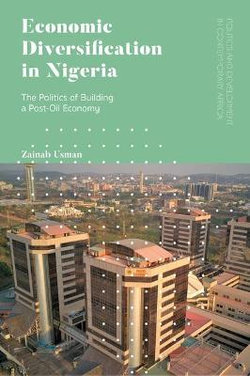Nigeria has for long been regarded as the poster child for the 'curse' of oil wealth. Yet despite this, Nigeria achieved strong economic growth for over a decade in the 21st century, driven largely by policy reforms in non-oil sectors. This open access book argues that Nigeria's major development challenge is not the 'oil curse', but rather one of achieving economic diversification beyond oil, subsistence agriculture, informal activities, and across its subnational entities. Through analysis drawing on economic data, policy documents, and interviews, Usman argues that Nigeria's challenge of economic diversification is situated within the political setting of an unstable distribution of power among individual, group, and institutional actors.
Since the turn of the century, policymaking by successive Nigerian governments has, despite superficial partisan differences, been oriented towards short-term crisis management of macroeconomic stabilization, restoring growth and selective public sector reforms. To diversify Nigeria's economy, this book argues that successive governments must reorient towards a consistent focus on pro-productivity and pro-poor policies, alongside comprehensive civil service and security sector overhaul. These policy priorities, Nigeria's ruling elites are belatedly acknowledging, are crucial to achieving economic transformation; a policy shift that requires a confrontation with the roots of perpetual political crisis, and an attempt to stabilize the balance of power towards equity and inclusion. The eBook editions of this book are available open access under a CC BY-NC-ND 4.0 licence on bloomsburycollections.com. Open access was funded by The Carnegie Endowment for International Peace.



Share This Book: